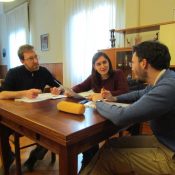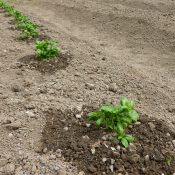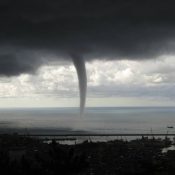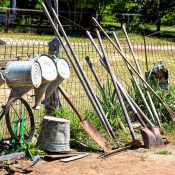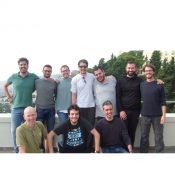Suddenly, at last, almost on the verge of resignation, we saw swallows a few days ago. So many and so fast with their unmistakable slender silhouettes, in a blindingly bright, cloudless early afternoon sky. Cloudless, that is, without the shadow of a doubt that was beginning to become insistent: but when are they coming? And then: are they really swallows? Even if the eye sometimes deceives, swallows, as everyone knows, are the unequivocal sign of the arrival of spring, which finally brings with it the thaw and the explosion of life.
From the viewpoint of the novitiate, which is often a privileged vantage point for observing phenomena, it was actually not too difficult to see this: the climate of silence and a certain amount of training in contemplation somehow help the gaze. In any case, it is still a great challenge to be able to look. There is, in fact, a mysterious correlation between meteorology and the life of the spirit: there is, in other words, almost a meteorology of the soul to which Jesus refers in the famous passage in Matthew 16, 1-4: “The Pharisees and Sadducees came to test him and asked him to show them a sign from heaven. But he said, ‘When evening comes, you say, “Good weather,” because the sky is red; and in the morning, “Stormy weather,” because the sky is dark red. Do you then know how to interpret the appearance of the sky, and do not know how to distinguish the signs of the times?”.
The spring of the year we are going through, 2022, seems far too full of signs, unfortunately not all of them of life, but rather of death and destruction. Where, then, are the swallows? Where is the explosion of life in a world devastated first by pandemic, now by war? We share this question, in faith and hope, with millions of men and women around the world today who, just like us, lift their eyes to the same sky, looking for signs of life and resurrection.
It is interesting that in number 236 of the Spiritual Exercises Ignatius proposes exactly this exercise, which not by chance is offered at the same time as a spiritual exercise but also as an exercise of observation of natural reality: “to consider how God labours and works for me in all created things on the face of the earth […] Thus in the heavens, in the elements, in plants, fruits, herds, etc., giving being, preserving, making vegetate, giving the senses, etc.”.
Nature, with its mysterious speech made up of sounds, scents and colours takes us back, with this spring 2022, to that truth that only with the eyes of faith can we recognise as life, a life that against all appearances never ceases to reappear, and to reassure us of its victorious return: “for, behold, the winter is past, the rain has ceased, it is gone; the flowers have appeared in the fields, the time of singing has returned, and the voice of the turtledove still makes itself heard in our countryside” (Ct 2:11-12).








